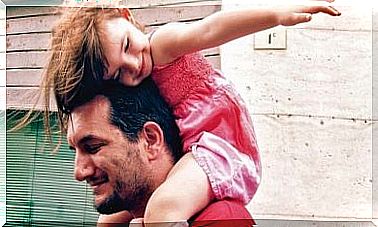7 Tips For Teaching Discipline

It is widely known that childhood is a complicated stage in life where each individual develops both physically and mentally. Childhood also shapes personality, good habits and behavior.
As parents, we have the challenge of promoting our children’s optimal development. We must balance our relationships with them and nurture respectful, fair and well-mannered individuals.
Teaching our children discipline is the best way to control their actions within the family, at school and even around the world. But it can be quite difficult.
7 ways to teach discipline
If you want to teach discipline, you can start with the recommendations of specialists. It is also important to think about the advice you get from your closest friends.
# 1: Be fair
Respect is something that should be high on the list. Respect and equality are both important values to teach our children. Treating children as equals and not as inferiors encourages them to want to contribute more.
It is not recommended that a child show obedience in the form of submission instead of respect. By not being too authoritarian, we teach them that it’s okay to give in from time to time.
# 2: Be careful
Many problems are avoided by being careful. It is important to tell the reason why the child is being punished so that one’s actions do not confuse them.
# 3: Allow freedom
It is important to give every family member the same rights.
Do this by giving your children the opportunity to express their opinion. It promotes trust.
# 4: Give them space
The basis of discipline is individual freedom. When children understand that they have their own personal space to choose their actions, it makes it easier for them to accept rules and authority.
It is important to allow children to act in accordance with their own free will and to be able to negotiate and communicate with their parents. It is important to establish rules and restrictions.
# 5: Set boundaries
As long as the family’s rules are clear, they should not be able to confuse or create disagreement. Being specific when setting rules at home is the first step to teaching discipline.
# 6: Avoid rewards you have not told us about before
When teaching a habit or behavior, it is important that the child expects the reward from the beginning.
For example, if you want it to do something and will give it a reward for it, it is very important that the child knows it beforehand.
If the child then performs the task, it will have learned discipline in two ways: one because they obeyed, and two because they fulfilled their personal goals. In other words, they have made both themselves and their parents happy.

# 7: Listen to your children
Listening is the basis for teaching discipline. It is linked to other things such as respect, equality, freedom and following rules.
It never hurts to listen to what your children want to tell you. It gives you insight into how they think and you thus become better at understanding their behaviors.
It is also important to listen to make them realize that they can trust you and that they have the opportunity to defend themselves.









